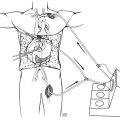
When you consider the skyrocketing cost of graduate education, recent initiatives stand out by offering full scholarships and stipends for clinical social work training in exchange for service in underserved U.S. communities. A major federal agency now funds grants and loan repayment for health professions students who commit to working in rural or inner‑city areas with Medicaid‑dependent populations. These programs cover tuition, books and fees and sometimes include living stipends, all contingent on post‑degree placements in communities lacking behavioral health clinicians.
Removing financial burdens helps diversify the clinical social worker pipeline and positions motivated trainees to build careers in high‑need communities. Career support, such as mentorship and placement guidance, accompanies the funding. The result is a growing cohort of graduates ready to step into roles serving populations where access has long been limited, directly expanding clinical training opportunities into the communities that need them most.
- 43 of 44 U.S. states reported behavioral health workforce shortages in 2024, with most citing gaps in hospitals, crisis services and community care.
- Over 77% of U.S. counties face mental health provider shortages – 55% have no psychiatrist, psychologist or social worker at all.
- Roughly 59% of the 463,000 U.S. licensed social workers are clinical, but only 22% hold licenses in multiple states.
- Mental health and substance abuse social work roles are projected to grow 11% by 2032, outpacing the average for all social work jobs.
Interstate Compact Expanding Mobility for Clinical Social Workers
A sweeping licensure reform currently in motion is reshaping your potential reach as a clinician. An interstate social work licensure compact has been enacted in roughly twenty‑seven states as of mid‑2025, triggering a commission that will oversee the rollout of multistate clinical licenses. At present, applicants cannot apply for the multistate license, but a fully operational data system and fee structure are being finalized and licenses should become available within eighteen to twenty‑four months.
Once live, this compact will let you practice across member states under one credential, greatly easing interstate mobility and permitting telehealth across state lines. Expansion to additional states continues, with this compact promising greater continuity of care and deployment flexibility for trainees and graduates heading into underserved regions without relocating. It also reduces administrative delays, allowing you to begin clinical work more quickly in areas facing urgent provider shortages.
Embedding Field Training in Community Settings
Community‑embedded field practicum models now assume a consequential part in expanding clinical social worker program education to underserved communities. Trainees are increasingly placed in grassroots venues such as federally qualified health centers in medically underserved areas, student‑run clinics serving uninsured populations and community organizations partnering with health providers. These placements bring students face-to-face with the structural and cultural realities shaping community health.
These settings enable supervised clinical internships with direct exposure to immigrants, unhoused people and economically disadvantaged families and often include interdisciplinary collaboration with nurses and peer counselors. Moreover, the field settings offer you a hands‑on learning experience deeply rooted in cultural competence and innovation, building long‑term relationships between communities and practitioners, as evidence shows that professionals are more likely to stay in areas where they train.
Community-Based Research, Volunteer Task‑Sharing and Non‑Specialist Models
Training models that integrate community‑led research and task‑sharing approaches are forming a third meaningful bridge. Typically, community‑based participatory research initiatives teach students to co‑design studies alongside local stakeholders, building awareness of structural inequities and sharpening clinical relevance. At scale, volunteer‑driven mental health programs equip peers and lay community members to deliver structured interventions in low‑resource settings using proven task‑sharing frameworks.
These initiatives, inspired by successful models such as volunteer movements emerging post-pandemic, deliver cost‑effective mental health support and rapidly build local trust. When you participate in these programs during training—through planting task‑sharing modules into practicum or participating in peer‑led intervention systems—you develop professional skills adaptable to underserved environments. That blend of academic clinical instruction and grassroots service delivery facilitates readiness for real‑world responsibility, enabling you to serve communities where traditional clinical services are rare.
Expanding Clinical Training Through Minority Scholarship and Workforce Diversity
Programs targeting students from underrepresented racial, ethnic and socioeconomic backgrounds are increasingly critical to generating a more representative clinical workforce. Current national and state‑level fellowships and scholarships provide full tuition, stipends, mentoring and peer networks for students committed to serving high‑need communities. Many of these programs focus predominantly on trainees with personal or family experience of mental health or substance challenges, or those from Medicaid‑reliant backgrounds.
That lived experience becomes a strength in clinical practice, strengthening cultural resonance. Here, support systems accompanying the funding help with retention through licensure and early career stages. You gain access to structured mentorship, professional support networks and placement assistance that aligns with service in underserved settings. The investment raises both workforce diversity and capacity in communities where behavioral health needs are highest and historically under‑met.
Post‑Script: What It Means for Your Practice
You’re stepping into a clinical social work landscape transforming in real time. Expanded financial support lowers the barrier to entry and sends more diverse, committed trainees into underserved areas. Interstate licensure reform that becomes active in late 2025 and beyond will let you operate across state lines without redundant licensing steps. This shift is expected to ease bottlenecks in mental health care delivery, especially in rural and multistate service regions.
Community‑based practicum models embedded in local, grassroots settings offer context‑rich training and increase the likelihood you’ll continue serving underserved areas. Community‑participatory research and task‑sharing models will give you broader tools and collaborative experience for low‑resourced contexts. Moreover, minority‑focused scholarships and fellowships drive a clinical workforce that better mirrors the communities in need and brings continuity through mentoring and retention pathways.
Together, these initiatives are bridging long‑standing gaps in clinical social work education and practice across America. You can benefit from articulated financial pathways, more accessible movement between states, embedded community field training, participatory service models and equity‑focused supports. The outcome should be a stronger, more diverse, more mobile clinical workforce embedded in the underserved communities that have long waited for access to skilled mental health professionals.
| Initiative | Description | Impact on Underserved Communities | Benefit to Trainees |
|---|---|---|---|
| Financial Support Programs | Full funding (tuition, fees, stipends) for students who commit to serving underserved areas | Expands clinical presence in low-resource areas | Reduces financial barriers; provides job placement and mentorship |
| Interstate Licensure Compact | Multistate license enabling practice across participating states | Increases clinician mobility and service reach | Eases relocation; supports telehealth; enhances career flexibility |
| Community‑Embedded Practicums | Field placements in grassroots settings like clinics, churches and shelters | Builds trust and long-term community connections | Real-world, culturally relevant experience; higher retention likelihood |
| Community Research & Task‑Sharing Models | Training includes participatory research and layperson-delivered mental health interventions | Offers immediate, cost-effective support in resource-poor settings | Enhances adaptability and cross-sector collaboration skills |
| Diversity-Focused Scholarships & Fellowships | Financial and mentorship support for underrepresented students | Increases workforce representation and cultural competence | Fosters professional growth and retention in underserved areas |




